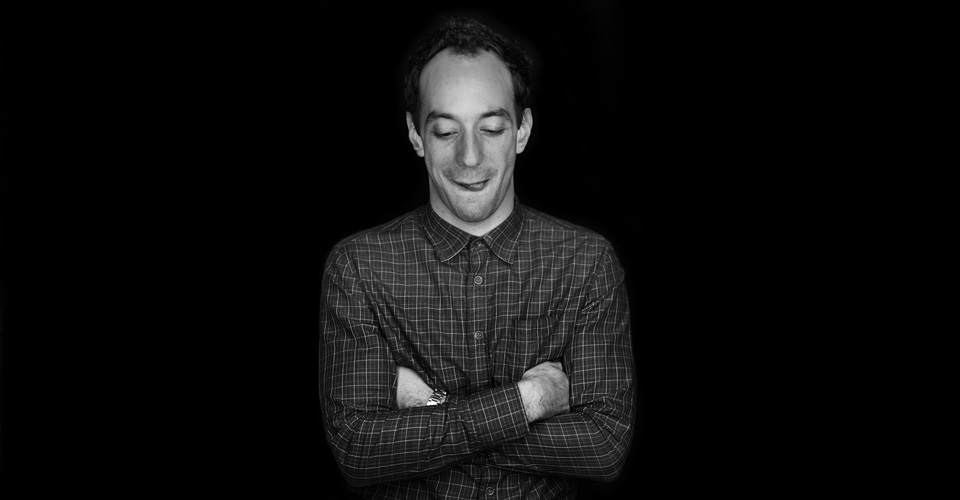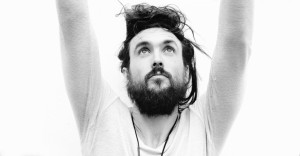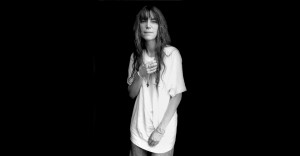Albert, did you have to try out to be in The Strokes?
Yeah. I remember when I met everyone. I met Julian first, then Nikolai, got really drunk one night, and then I went to go try out, even though Julian told me later that in his mind I was already in the band.
How come?
I was an okay player, I could play chords and stuff, but I looked awesome. (Laughs) I just looked like there was only one thing I could do: be in a band. It looked like I was already successful, basically. Which is what I wanted to do when I was 16. I just felt like if you did that, aesthetically you would just draw people who were doing the same thing.
What made you move to New York at the age of 18?
Well after boarding school in Switzerland, at like 14 or 15 my life clicked and I just realized, “I don’t want to be like anyone around me at my school. I don’t think the world revolves around money.” I think boarding school gave me that little bit of extra courage that I probably needed when I was 18 and said, “Fuck it, I got to get out of the house and go do something.” I just wanted to get away. I felt very confused by my surroundings and how people looked at the world, the wealthy people.
Not many people move to New York to get away from money…
I am not judging them and everyone has their own path, but I just felt a very strong emotion and needed to get out. I felt like the idea of life and death and what you do, everything is kind of meaningless in the big scope of stuff and you need to create your own meaning and I definitely did not believe in god or religion or anything like that.
Do you believe in life after death now?
No. I mean, it depends on how you look at it. In the sense that we all have a piece of cosmic dust in us from the beginning – The Big Bang – then yes. But no, I don’t believe in heaven or hell.
So you better make your life count.
No, you don’t have to do anything. It can be meaningless and you can do nothing, but there is something in leaving this place better than where you have left it, working on yourself, doing things with other people, there is something in that that feels right, deep in your core. I go with that.
Kind of like The Strokes’ song “You Only Live Once”…
Julian wrote that. I’m in the band, but I still take his lyrics like a fan would. You always relate lyrics to yourself, and I even do that with him even though he is one of my friends and we lived together when he was writing it. God knows what they were truly about. But it came full circle when he was over listening to “St. Justice” from my new solo EP. It was really cute, he was like, “Is this lyric about me?” And I was like, “…no, man.” It really wasn’t, but it was a good circle because I’ve felt that way about so many of his lyrics. When we got in the band, Julian had such a vision, he was just a strong writer, so the first three records are all his.
When you first got together did you know right away that you guys had something special?
I can only say it now that we are successful, so it doesn’t seem very significant, but I’m telling you: the first day I met them I just knew that we were going to be successful. I already had the drive to want to do it anyways, but I found all the right people and it was just so much luck. I don’t even understand it. Just cosmic luck.
How does a twenty-year-old deal with instant fame?
Oh god man, just being young makes things wild. Then if you add having a curiosity for being wild that makes it wilder, then if you play music it makes it wilder, then if you add money and success it makes it even crazier. I can’t even begin to say stories because every day there was something. But the biggest things, the biggest highs, were always shows. I feel like that’s what you end up trying to re-live when you come home. I remember headlining Reading Festival, the stuff you feel when you’re on stage like that is just…
Playing for 80,000 people…
Maybe that’s why when you get off stage you’re just like, “Fuck it,” and you just consume and do everything. You already feel invincible, you’re 21, 22. You hang out with someone that old now and you’re like… “What are you doing?” So imagine that with whatever rush you’re getting from the stage and all the compliments and you’re just trying to take it all.
What is it like after a show now that you are sober?
On the last tour with The Strokes, the high of playing Madison Square Garden was higher than any drug has ever gotten me. It was ridiculous. I was wired until about 8 in the morning, couldn’t sleep, I woke up the next day like I was hung-over. So I was like, “Wow, this is what it would have been like had I been on tour and not done anything.”
Did that make your regret using drugs?
Some of it was amazing and some of it led to finding the darkest part of your soul. Which in a way is kind of cool. I don’t know if I would recommend it or do it again, but I appreciate where I am now.
At what point did the drugs become more than just recreational?
I think what pushed me to do the drugs at first was fun, partying, and then I found opiates in general kind of helped me focus, they didn’t zone me out. I was able to throw away all the small talk in my head, my anxiety, and that was like the perfect drug. But over time you don’t see it getting worse and worse – I know it sounds cliché. It’s perfect if you are able to be moderate and if you have control. But then something bad happens in your life and like some people say, “Fuck it,” and they get drunk, you say, “Fuck it,” and do drugs. And then when you do that much for that long, no matter how much you want to get out of it, it’s not just a switch you turn on or off. It’s a process.
Did you enjoy being out of control?
I imagine that is part of it. I did some crazy things, some things I am not proud of. You know, I reached points where I was insane, hearing voices because I was up for so long, moving stuff around and locking myself in my room for long periods of time. I became in love with that very dark side of it, I became in love with the process of intravenous use, even more so than the drugs, just the process of pushing something in there.
Most people are afraid of doing drugs intravenously.
It was weird. I’ve always wanted to do it. Most people are afraid of it, but I always loved pushing that boundary. If I am honest with myself, since I was 15 I knew I was going to do it, but I had this mechanism where I was able to not do too much because I wanted to achieve something first and I was afraid that it would consume me. And so as I started to achieve I think I mentally allowed myself to go further and further into it until by the end it was not even about getting high for fun or getting high to work, it was just about complete and utter non-functioning.
How did that affect your bandmates?
What everyone tells me is that the friendship came before the band. Everyone just told me as a friend, “I don’t want to see you like this. Forget the band.” Such a big part of me is being in this band, it’s huge, but life isn’t all about what you do. I feel like our culture says, “You are what you make,” but I don’t believe that. So I think everyone was just more concerned that I was going to kill myself.
How close did you get?
I wasn’t going to kill myself on purpose, but you reach a point where you really just don’t see it and you just don’t care. It could have happened so easily so many times. I don’t even know how I kept on waking up. First you are at least measuring it. But by the end you are so shaky you are just mixing and pouring and sometimes you feel it. You push it in and you know it is too much and then your body goes into some kind of shake and you get extreme fear, like, “That’s it, I have done it, I have done too much. I am going to fall down.”
Would experiences like those scare you into cutting back for a little while?
No, that’s what’s crazy to me now. It does not scare you to stop or even make you consider. You are looking at yourself in the mirror and thinking, “I’ve done too much,” and you’re trying to stay focused to not black out. Then when it’s over you are like, “Okay cool,” and 15 minutes later you go back and do it again.
So that’s what you mean when you say you saw the “dark part of your soul…”
Oh yeah. And I began to talk about it just because I felt it was necessary to explain how I reached where I am now. I feel like it is all part of it. It was never to show off, it was more an excitement of understanding and being like, “Wow I had it all wrong for so long, I can’t believe it.” There are so many more interesting things in this part of my life than there were in that dark part.
Was it hard to get back to work after rehab?
When I came back I looked at the guitar in a very confused way for a year or year and a half. I just didn’t get it. You don’t get anything. So it just kind of sat there. Then slowly but surely it came out and came out even better. I did a few songs on piano and… it was fun, it was a change, but then after that I tossed those away and stepped up again and felt like I was creating something different when I started working on my latest solo EP. I feel like it is a mixture and understanding of my two previous solo albums, which is why I am calling it the best thing I have done. It is where I always wanted to be but needed to take those steps to get to.
Return to Top

Short Profile
Name: Albert Louis Hammond, Jr.
DOB: 9 April 1980
Place of Birth: Los Angeles, California, USA
Occupation: Musician
Recent Project: AHJ




















I’ve just gotta say that, for me, he’s one of the most talented artist of our time…
Drug talk went on too long – boring. Really enjoyed the parts about the music.
Incredibly self-centred, overly privileged prick.